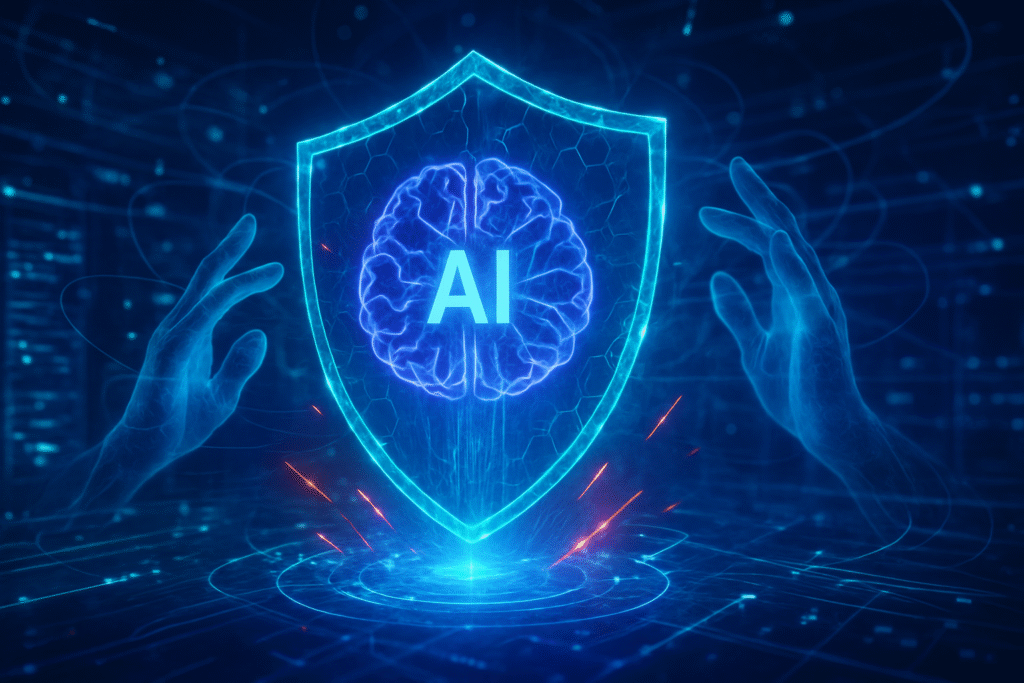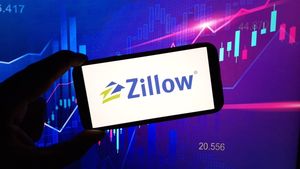Financial News
Aqua Security Crowned ‘CyberSecurity Solution of the Year for Artificial Intelligence’ for Pioneering AI-Powered Cloud-Native Security

Aqua Security, a recognized leader in cloud-native security, has been honored with the prestigious 'CyberSecurity Solution of the Year for Artificial Intelligence' award in the ninth annual CyberSecurity Breakthrough Awards program. This significant recognition, announced on October 9, 2025, highlights Aqua Security's groundbreaking AI-powered cybersecurity solution, Aqua Secure AI, as a pivotal advancement in protecting the rapidly expanding landscape of AI applications. The award underscores the critical need for specialized security in an era where AI is not only a target but also a powerful tool in the hands of cyber attackers, signifying a major breakthrough in AI-driven security.
The immediate significance of this accolade is profound. For Aqua Security, it solidifies its reputation as an innovator and leader in the highly competitive cybersecurity market, validating its proactive approach to securing AI workloads from code to cloud to prompt. For the broader cybersecurity industry, it emphasizes the undeniable shift towards leveraging AI to defend against increasingly sophisticated threats, while also highlighting the urgent requirement to secure AI applications themselves, particularly within cloud-native environments.
Aqua Secure AI: Unpacking the Technical Breakthrough
Aqua Secure AI stands out as a first-of-its-kind solution, meticulously engineered to provide comprehensive, full lifecycle protection for AI applications. This encompasses every stage from their initial code development through cloud runtime and the critical prompt interaction layer. Seamlessly integrated into the broader Aqua Platform, a Cloud Native Application Protection Platform (CNAPP), this innovative system offers a unified security approach specifically designed to counter the unique and evolving challenges posed by generative AI and Large Language Models (LLMs) in modern cloud-native infrastructures.
Technically, Aqua Secure AI boasts an impressive array of capabilities. It performs AI Code Scanning and Validation during the development phase, intelligently detecting AI usage and ensuring the secure handling of inputs and outputs related to LLMs and generative AI features. This "shift-left" approach is crucial for identifying and remediating vulnerabilities at the earliest possible stage. Furthermore, the solution conducts AI Cloud Services Configuration Checks (AI-SPM) to thoroughly assess the security posture of cloud-based AI services, guaranteeing alignment with organizational policies and governance standards. A cornerstone of its defense mechanism is Runtime Detection and Response to AI Threats, which actively identifies unsafe AI usage, detects suspicious activity, and effectively stops malicious actions in real time. Critically, this is achieved without requiring any modifications to the application or its underlying code, leveraging deep application-layer visibility and protection within containerized workloads.
A significant differentiator is Aqua Secure AI's sophisticated Prompt Defense mechanism. This feature meticulously evaluates LLM prompts to identify and mitigate LLM-based attacks such as prompt injection, code injection, and "JailBreak" attempts, while also providing robust safeguards against secrets leakage through AI-driven applications. The solution offers comprehensive AI Visibility and Governance at Runtime, providing unparalleled insight into the specific AI models, platforms, and versions being utilized across various environments. It then enforces context-aware security policies meticulously aligned with the OWASP Top 10 for LLMs. Leveraging Aqua's lightweight eBPF-based technology, Aqua Secure AI delivers frictionless runtime protection for AI features within Kubernetes and other cloud-native environments, entirely eliminating the need for SDKs or proxies. This innovative approach significantly diverges from previous security solutions that often lacked AI-specific threat intelligence or necessitated extensive code modifications, firmly positioning Aqua Secure AI as a purpose-built defense against the new generation of AI-driven cyber threats.
Initial reactions from the industry have been overwhelmingly positive, underscored by the CyberSecurity Breakthrough Award itself. Experts readily acknowledge that traditional CNAPP tools often fall short in providing the necessary discovery and visibility for AI workloads—a critical gap that Aqua Secure AI is specifically designed to fill. Dror Davidoff, CEO of Aqua Security, emphasized the award as a testament to his team's dedicated efforts in building leading solutions, while Amir Jerbi, CTO, highlighted Aqua Secure AI as a natural extension of their decade-long leadership in cloud-native security. The "Secure AI Advisory Program" further demonstrates Aqua's commitment to collaborative innovation, actively engaging enterprise security leaders to ensure the solution evolves in lockstep with real-world needs and emerging challenges.
Reshaping the AI Security Landscape: Impact on the Industry
Aqua Security's breakthrough with Aqua Secure AI carries profound implications for a wide spectrum of companies, from burgeoning AI startups to established tech giants and major AI labs. Organizations across all verticals that are rapidly adopting and integrating AI into their operations stand to benefit immensely. This includes enterprises embedding generative AI and LLMs into their cloud-native applications, as well as those transitioning AI from experimental phases to production-critical functions, all of whom face novel security challenges that traditional tools cannot adequately address. Managed Security Service Providers (MSSPs) are also keen beneficiaries, leveraging Aqua Secure AI to offer advanced AI security services to their diverse clientele.
Competitively, Aqua Secure AI elevates the baseline for AI security, positioning Aqua Security as a pioneering force in providing full lifecycle protection from "code to cloud to prompt." This comprehensive approach, recognized by OWASP, sets a new standard that directly challenges traditional CNAPP solutions which often lack specific discovery and visibility for AI workloads. Aqua's deep expertise in runtime protection, now extended to AI workloads through lightweight eBPF-based technology, creates significant pressure on other cybersecurity firms to rapidly enhance their AI-specific runtime security capabilities. Furthermore, Aqua's strategic partnerships, such as with Akamai (NASDAQ: AKAM), suggest a growing trend towards integrated solutions that cover the entire AI attack surface, potentially prompting other major tech companies and AI labs to seek similar alliances to maintain their competitive edge.
Aqua Secure AI is poised to disrupt existing products and services by directly confronting emerging AI-specific risks like prompt injection, insecure output handling, and unauthorized AI model use. Existing security solutions that do not specifically address these unique vulnerabilities will find themselves increasingly ineffective in protecting modern AI-powered applications. A key disruptive advantage is Aqua's commitment to "security for AI that does not compromise speed," as it secures AI applications without requiring changes to application code, SDKs, or extensive modifications to development workflows. This frictionless integration can significantly disrupt solutions that demand extensive refactoring or inherently slow down critical development pipelines. By integrating AI security into its broader CNAPP offering, Aqua also reduces the need for organizations to "stitch together point solutions," offering a more unified and efficient approach that could diminish the market for standalone, niche AI security tools.
Aqua Security has strategically positioned itself as a definitive leader and pioneer in securing AI and containerized cloud-native applications. Its strategic advantages are multifaceted, including pioneering full lifecycle AI security, leveraging nearly a decade of deep cloud-native expertise, and utilizing unique eBPF-based runtime protection. This proactive threat mitigation, seamlessly integrated into a unified CNAPP offering, provides a robust market positioning. The Secure AI Advisory Program further strengthens its strategic advantage by fostering direct collaboration with enterprise security leaders, ensuring continuous innovation and alignment with real-world market needs in a rapidly evolving threat landscape.
Broader Implications: AI's Dual-Edged Sword and the Path Forward
Aqua Security's AI-powered cybersecurity solution, Secure AI, represents a crucial development within the broader AI landscape, aligning with and actively driving current trends toward more intelligent and comprehensive security. Its explicit focus on providing full lifecycle security for AI applications within cloud-native environments is particularly timely and critical, given that over 70% of AI applications are currently built and deployed in containers on such infrastructure. By offering capabilities like AI code scanning, configuration checks, and runtime threat detection for AI-specific attacks (e.g., prompt injection), Aqua Secure AI directly addresses the fundamental need to secure the AI stack itself, distinguishing it from generalized AI-driven security tools that lack this specialized focus.
The wider impacts on AI development, adoption, and security practices are substantial and far-reaching. Solutions like Secure AI can significantly accelerate AI adoption by effectively mitigating the inherent security risks, thereby fostering greater confidence in deploying generative AI and LLMs across various business functions. This will necessitate a fundamental shift in security practices, moving beyond traditional tools to embrace AI-specific controls and integrated platforms that offer "code to prompt" protection. The intensified emphasis on runtime protection, powerfully exemplified by Aqua's eBPF-based technology, will become paramount as AI workloads predominantly run in dynamic cloud-native environments. Ultimately, AI-driven cybersecurity acts as an indispensable force multiplier, enabling defenders to analyze vast data, detect anomalies, and automate responses at speeds unachievable by human analysts, making AI an indispensable tool in the escalating cyber arms race.
However, the advancement of such sophisticated AI security also raises potential concerns and ethical considerations that demand careful attention. Privacy concerns inherently arise from AI systems analyzing vast datasets, which often include sensitive personal information, necessitating rigorous consent protocols and data transparency. Algorithmic bias, if inadvertently present in training data, could lead to unfair or discriminatory security outcomes, underscoring the critical need for diverse data, ethical oversight, and proactive bias mitigation. The "black box" problem of opaque AI decision-making processes complicates accountability when errors or harm occur, highlighting the importance of explainable AI (XAI) and clear accountability frameworks. Furthermore, the dual-use dilemma means that while AI undeniably enhances defenses, it also empowers attackers to create more sophisticated and evasive threats, leading to an "AI arms race" and the inherent risk of adversarial AI attacks specifically designed to trick security models. An over-reliance on AI without sufficient human oversight also poses a risk, emphasizing AI's optimal role as a "copilot" rather than a full replacement for critical human expertise and judgment.
Comparing this breakthrough to previous AI milestones in cybersecurity reveals a clear and progressive evolution. Early AI in the 1980s and 90s primarily involved rules-based expert systems and basic machine learning for pattern detection. The 2010s witnessed significant growth with machine learning and big data, enabling real-time threat detection and predictive analytics. More recently, deep learning and neural networks offered increasingly sophisticated threat detection capabilities. Aqua Secure AI represents the latest frontier, specifically leveraging generative AI and LLM advancements to provide specialized, full lifecycle security for AI applications themselves. While previous milestones focused on AI for general threat detection, Aqua's solution is purpose-built to secure the unique attack surface introduced by LLMs and autonomous agents, offering a level of AI-specific protection not explicitly available in earlier AI cybersecurity solutions. This specialized focus on securing the AI stack, particularly in cloud-native environments, marks a distinct and critical new phase in cybersecurity's AI journey.
The Horizon: Anticipating Future AI Security Developments
Aqua Security's pioneering work with Aqua Secure AI sets a compelling precedent for a future where AI-powered cybersecurity will become increasingly autonomous, deeply integrated, and proactively intelligent, particularly within cloud-native AI application environments. In the near term, we can anticipate a significant surge in enhanced automation and more sophisticated threat detection. AI will continue to streamline security operations, from granular alert triage to comprehensive incident response orchestration, thereby liberating human analysts to focus on more complex, strategic issues. The paradigm shift towards proactive and predictive security will intensify, with AI leveraging advanced analytics to anticipate potential threats before they materialize, leading to the development of more adaptive Security Operations Centers (SOCs). Building on Aqua's lead, there will be a heightened and critical focus on securing AI models and applications themselves within cloud-native environments, including continuous governance and real-time protection against AI-specific threats. The "shift-left" security paradigm will also be substantially bolstered by AI, assisting in secure code generation and advanced automated security testing, thereby embedding protection from the very outset of development.
Looking further ahead, long-term developments point towards the emergence of truly autonomous security systems capable of detecting, analyzing, and responding to cyber threats with minimal human intervention; agentic AI is, in fact, expected to handle a significant portion of routine security tasks by 2029. This will necessitate the development of equally autonomous defense mechanisms to robustly protect these advanced systems. Advanced predictive risk management will become a standard practice, with AI continuously learning from vast volumes of logs, threat feeds, and user behaviors to forecast potential attack paths and enable highly adaptive defenses. Adaptive policy management using sophisticated AI methods like reinforcement learning will allow security systems to dynamically modify policies (e.g., firewall rules, Identity and Access Management permissions) in real-time as the threat environment changes. The focus on enhanced software supply chain security will intensify, with AI providing more advanced techniques for verifying software provenance, integrity, and the security practices of vendors and open-source projects. Furthermore, as cloud-native principles extend to edge computing and distributed cloud environments, new AI-driven security paradigms will emerge to secure a vast number of geographically dispersed, resource-constrained devices and micro-datacenters.
The expanded role of AI in cybersecurity will lead to a multitude of new applications and significantly refined existing ones. These include more sophisticated malware and endpoint protection, highly automated incident response, intelligent threat intelligence, and AI-assisted vulnerability management and secure code generation. Behavioral analytics and anomaly detection will become even more refined and precise, while advanced phishing and deepfake detection, leveraging the power of LLMs, will proactively identify and block increasingly realistic scams. AI-driven Identity and Access Management (IAM) will see continuous improvements in identity management, access control, and biometric/behavioral analysis for secure and personalized access. AI will also increasingly enable automated remediation steps, from patching vulnerabilities to isolating compromised workloads, albeit with critical human oversight. Securing containerized workloads and Kubernetes environments, which form the backbone of many AI deployments, will remain a paramount application area for AI security.
Despite this immense potential, several significant challenges must be addressed for the continued evolution of AI security. The weaponization of AI by attackers will lead to the creation of more sophisticated, targeted, and evasive threats, necessitating constant innovation in defense mechanisms. Adversarial AI and machine learning attacks pose a direct threat to AI security systems themselves, requiring robust countermeasures. The opacity of AI models (the "black box" problem) can obscure vulnerabilities and complicate accountability. Privacy and ethical concerns surrounding data usage, bias, and autonomous decision-making will necessitate the development of robust ethical guidelines and transparency frameworks. Regulatory lag and the persistent cybersecurity skill gap will continue to be pressing issues. Furthermore, the fundamental challenge of gaining sufficient visibility into AI workloads will remain a key hurdle for many organizations.
Experts predict a transformative period characterized by both rapid advancements and an escalating arms race. The escalation of AI in both attack and defense is inevitable, making autonomous security systems a fundamental necessity. There will be a critical focus on developing "responsible AI," with vendors building guardrails to prevent the weaponization or harmful use of LLMs, requiring deep collaboration between security experts and software developers. New regulatory frameworks, anticipated in the near future (e.g., in early 2025 in the US), will compel enterprises to exert greater control over their AI implementations, ensuring trust, transparency, and ethics. The intersection of AI and cloud-native security, as exemplified by Aqua's breakthrough, is seen as a major turning point, enabling predictive, automated defense systems. AI in cybersecurity will also increasingly integrate with other emerging technologies like blockchain to enhance data integrity and transparency, and play a crucial role in completely autonomous defense systems.
Comprehensive Wrap-up: A New Era for AI Security
Aqua Security's recognition as 'CyberSecurity Solution of the Year for Artificial Intelligence' for its Aqua Secure AI solution is a landmark event, signifying a crucial inflection point in the cybersecurity landscape. The key takeaway is the definitive validation of a comprehensive, full-lifecycle approach to securing AI applications—from initial code development to cloud runtime and the critical prompt interaction—specifically designed for dynamic cloud-native environments. This prestigious award highlights the urgent need for specialized AI security that directly addresses emerging threats like prompt injection and jailbreaks, rather than attempting to adapt generalized security measures. Aqua Secure AI's unparalleled ability to provide deep visibility, real-time protection, and robust governance for AI workloads without requiring any code changes sets a new and formidable benchmark for frictionless, highly effective AI security.
This development holds immense significance in AI history, marking the clear maturity of "security for AI" as a dedicated and indispensable field. It represents a crucial shift beyond AI merely enhancing existing security tools, to focusing intently on protecting the AI stack itself. This paradigm shift will, in turn, enable more responsible, secure, and widespread enterprise adoption of generative AI and LLMs. The long-term impact on the cybersecurity industry will be a fundamental transformation towards embedding "security by design" principles for AI, fostering a more proactive, intelligent, and resilient defense posture against an escalating AI-driven threat landscape. This breakthrough will undoubtedly influence future regulatory frameworks globally, emphasizing transparency, accountability, and ethical considerations in all aspects of AI development and deployment.
In the coming weeks and months, industry observers and organizations should closely watch for further developments from Aqua Security, particularly the outcomes and invaluable insights generated by its Secure AI Advisory Program. This collaborative initiative promises to shape future feature enhancements, establish new best practices, and set industry benchmarks for AI security. Real-world deployment case studies demonstrating the tangible effectiveness of Aqua Secure AI in diverse enterprise environments will be crucial indicators of its market adoption and profound impact. The competitive landscape will also be a key area to monitor, as Aqua Security's recognition will likely spur other cybersecurity vendors to accelerate their own AI security initiatives, leading to a surge in new AI-specific features, strategic partnerships, or significant acquisitions. Finally, staying abreast of updates to AI threat models, such as the evolving OWASP Top 10 for LLMs, and meticulously observing how security solutions adapt to these dynamic threat landscapes, will be absolutely vital for maintaining a robust security posture in the rapidly transforming world of artificial intelligence.
This content is intended for informational purposes only and represents analysis of current AI developments.
TokenRing AI delivers enterprise-grade solutions for multi-agent AI workflow orchestration, AI-powered development tools, and seamless remote collaboration platforms.
For more information, visit https://www.tokenring.ai/.
More News
View More





Quotes delayed at least 20 minutes.
By accessing this page, you agree to the following
Privacy Policy and Terms Of Service.



